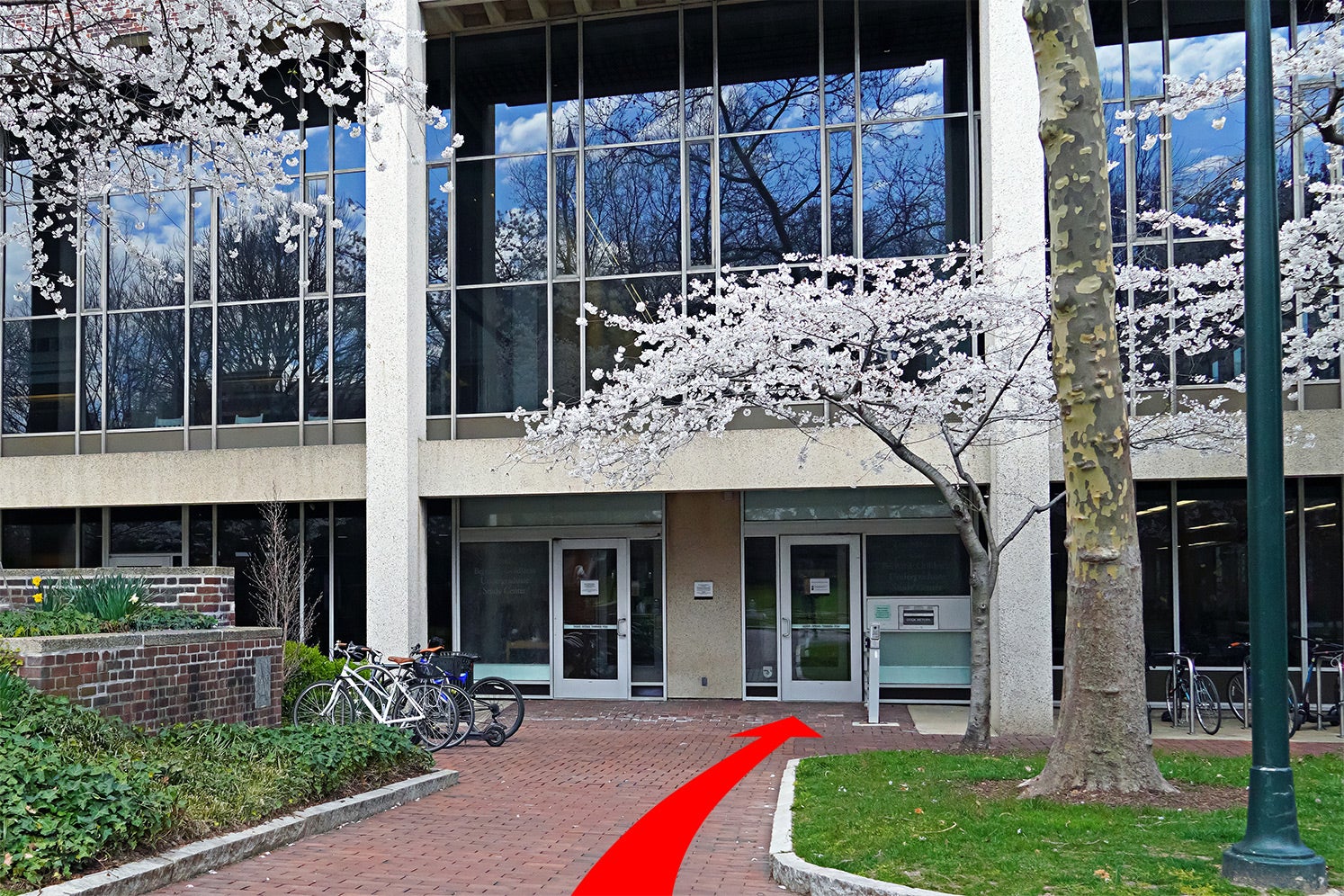- No food permitted.
- Covered beverages allowed.
Vitale Digital Media Lab
Closed | Library Hours
The lab offers training, equipment and knowledgeable staff to assist patrons in working with digital media including video, audio, image editing/scanning, graphic design, and web publishing. Lab resources are available to all current Penn students, faculty, and staff.

Accordion List
Location
121 Van Pelt-Dietrich Library Center, 1st floor west
Weigle Information Commons
Floor plan
Contact Us
Location and Accessibility
Accessibility
For Wheelchairs
- Table with accessible surface height, knee clearance, and leg clearance
Lighting
- Natural and/or non-fluorescent light
Nearby Bathrooms
Nearest bathroom is immediately above on the second floor: Take an elevator from WIC. One accessible, gender-neutral bathroom is located at the west end of the library in the Lippincott space. (see floor plan)

